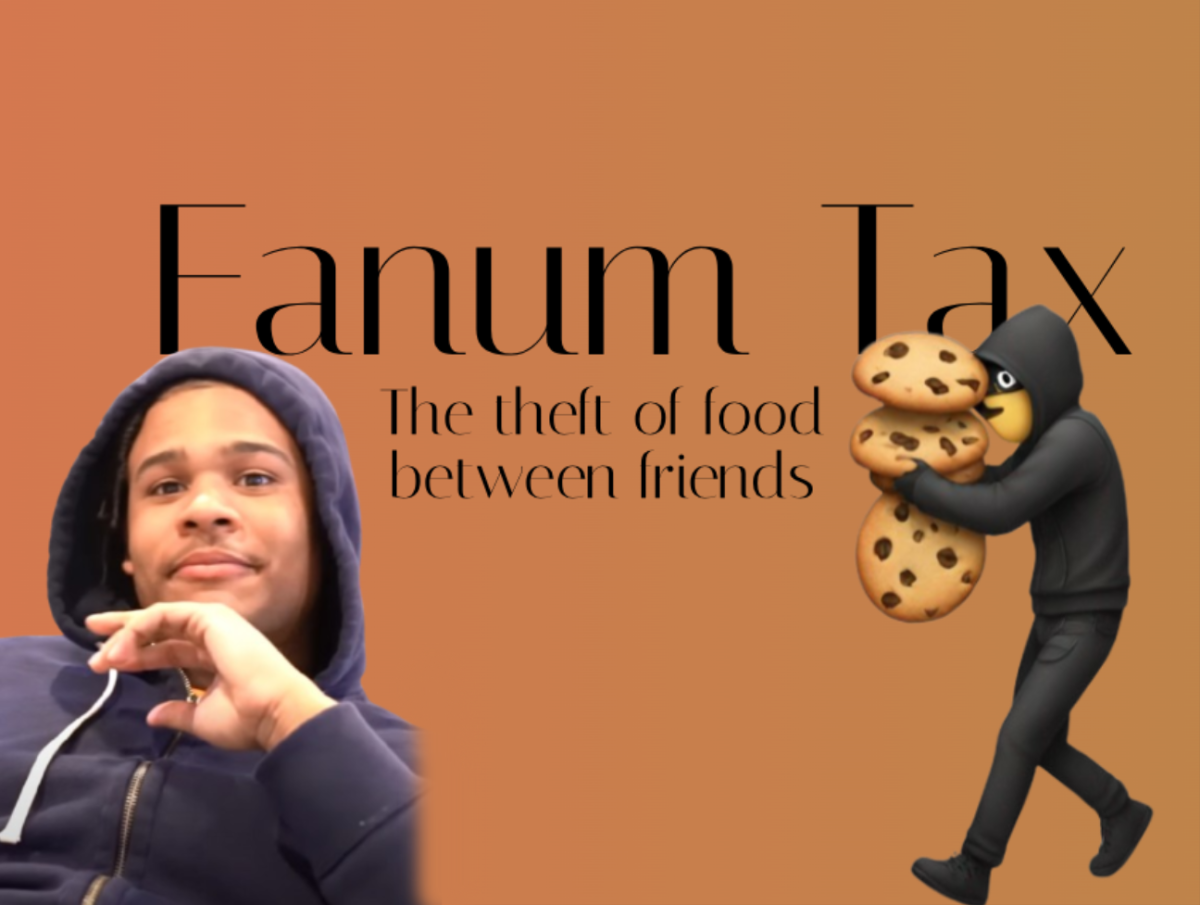Fanum tax: Another perplexing, iconically misused Gen Alpha term. Of all the newest words circulating through Gen Alpha’s vocabulary—ranging from modern-day knockoffs of old slang to words with seemingly undecided definitions—Fanum tax has emerged as one of the most popular and confusing internet memes. So, what does Fanum tax actually mean, and what sets it apart from other terms as an overly absurd, mind-numbing word?
The concept of Fanum tax began in 2022 when American Twitch streamer Robert Gonzalez, better known as Fanum, was seen “taxing” other social media influencers by stealing their food. Social media was the key contributor to the exponential growth of Fanum tax’s use. Fanum created Twitch streams with famous influencer Kai Cenat, where he “taxed” his friends, popularizing the word. The gag spread across other social media platforms, like YouTube and TikTok. A song created on TikTok by real wayne, titled “Sticking Out Your Gyat for the Rizzler,” included the term multiple times, causing the popularity of Fanum tax to erupt. After blowing up all over TikTok and other platforms, the word eventually established itself in Gen Alpha’s colloquialism.
Interestingly, Fanum tax has flummoxed slightly older Gen Zers. According to Business Insider, even 14-year-olds are saying that they “had never felt old until they heard [Fanum tax].” Many Gen Z members are unable to comprehend Fanum tax and its purpose, likely because its users improperly incorporate the word into nonsensical remarks. Surprisingly, the definition of Fanum tax is pretty straightforward. On GQ’s YouTube channel, Fanum himself explained: “The tax is pretty much… feed your friends. Sometimes 5%, sometimes 10%.” In other words, Fanum tax is an amount of food friends should be willing to donate to others. So, why are non-Gen Alphas having difficulty understanding the concept? Despite its simple definition, when used in a sentence, Fanum tax rarely makes grammatical sense (or any type of sense, for that matter). Fanum tax is sometimes used in inventive ways, such as in the phrase “you’re so Fanum tax,” or when paired with other Gen Alpha terms, like “skibidi” or “rizz.” Though it is generally not seen as a filler word, some users are simply finding ways to make their sentences wordier.
Another reason teens find themselves confused by the idea of Fanum tax could be that the idea of “taxing” a friend is so bizarre. Even when used properly, such as in the sentence “you already hit me with the Fanum tax,” it doesn’t properly flow in a logical sense. Maybe it’s the concept of “hitting” someone with a tax, or the fact that the term includes “Fanum,” which sounds random out of context. Whatever the reason, Fanum tax seems to have reached a new level of complexity within our society, and not in a positive way. At least now you know what a Fanum tax is and why it doesn’t seem to make sense. All that’s left to do is find out how and why Gen Alpha is so insistent on driving the other generations insane with all these nonsensical phrases.







